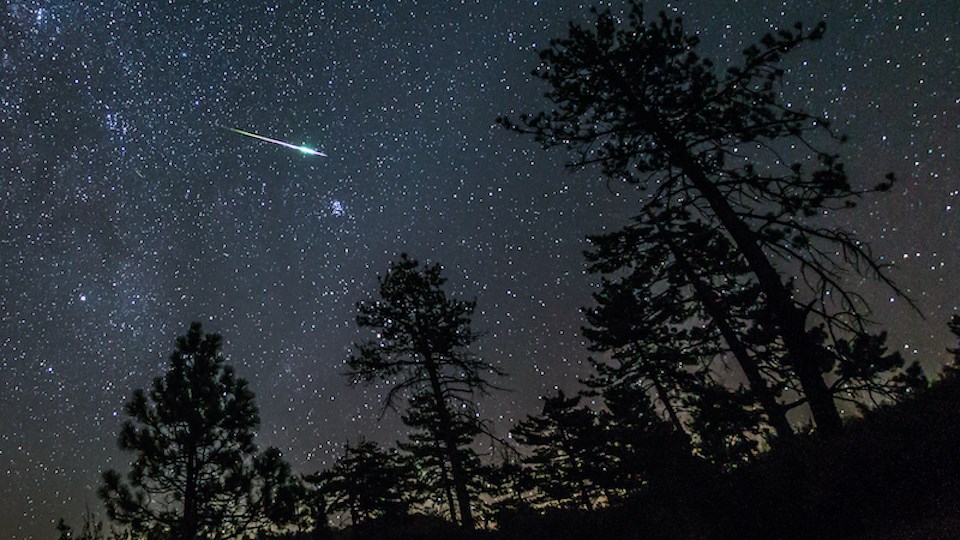If you've been waiting on a particularly bright shooting star to make a wish on, you might want to mark your calendars for the peak of a spellbinding shower this month.
The Leonid meteor shower kicks off on Nov. 3 and carries through Dec. 2 and is popular for producing five "meteor storms" over the past 200 years. While one of those isn't forecasted for 2022, there may be "good displays" of up to 100 shooting stars per hour, according to the American Meteorological Society.
The Leonids are also popular for producing "bright meteors with a high percentage of persistent trains" that are referred to as earth grazers. They streak close to the horizon and often have long, colourful tails.
The meteor shower also produces "fireballs," which the American Meteorological Society describes as very bright meteors that are about the same brightness as the "planet Venus in the morning or evening sky." Additionally, some people report seeing vivid colours because the brightness is "great enough to fall well within the range of human colour vision." Some of them even report hearing "sonic booms, and electrophonic sounds," albeit very rarely.
Considered a major display, the Leonid meteor shower is also one of the fastest, reaching speeds up to 44 miles per second, according to NASA.
You can catch the peak of the shower on Nov. 17 to Nov.18.
Leonid meteor shower 2022 viewing tips in Metro Vancouver
To fully enjoy the spectacle, here are a few tips for meteor hunting:
- If possible, head away from city lights, which make it hard to see fainter meteors. To increase your chances of seeing shooting stars, set out in search of dark skies in the countryside.
- If you need to use a flashlight, place a red filter over the bulb (a red balloon will do in a bind). White light is very blinding and may affect your night vision.
- Dress warmly. It is still a good idea to bring warm (even winter) clothes.
- Sit back and relax on a reclining chair or lie down on a blanket. Not only is it much more comfortable to observe the stars lying down, but you'll also see more that way.
- Pack a thermos of hot chocolate or coffee—it will come in handy if you start to drift off or get a little chilly!
- Be patient. It might take a while before you see your first shooting star. Don't be quick to give up... It's worth the wait!



